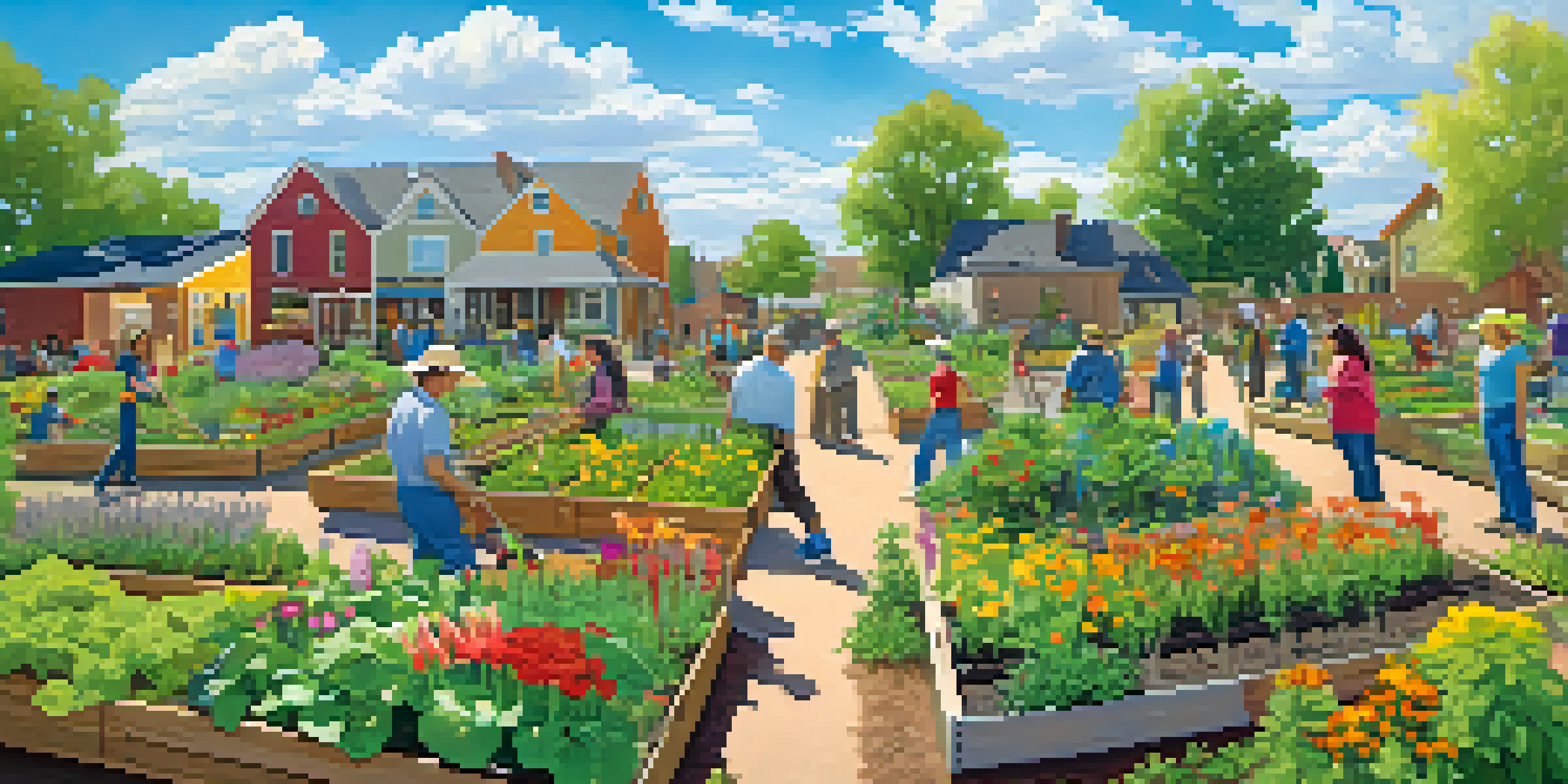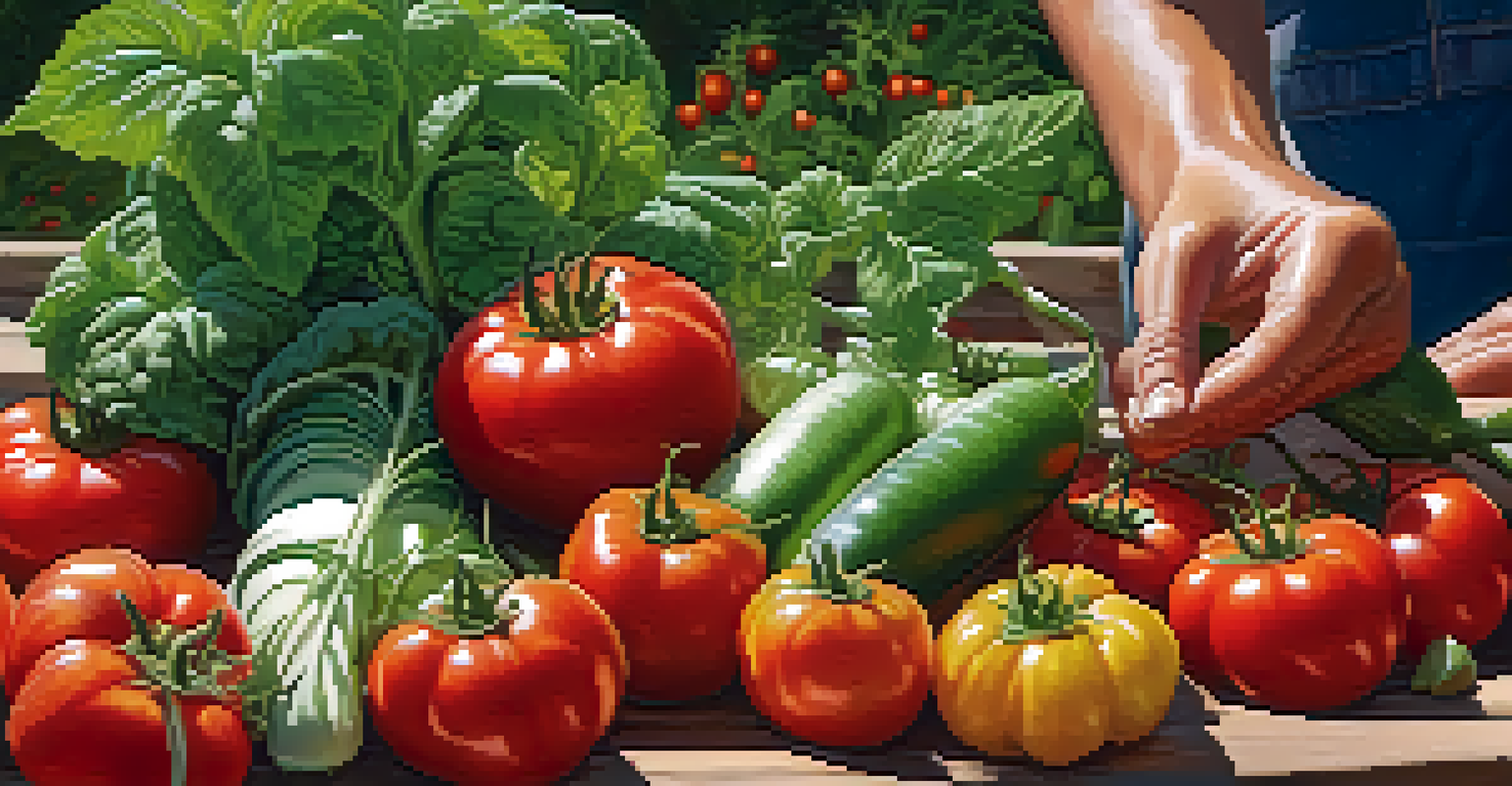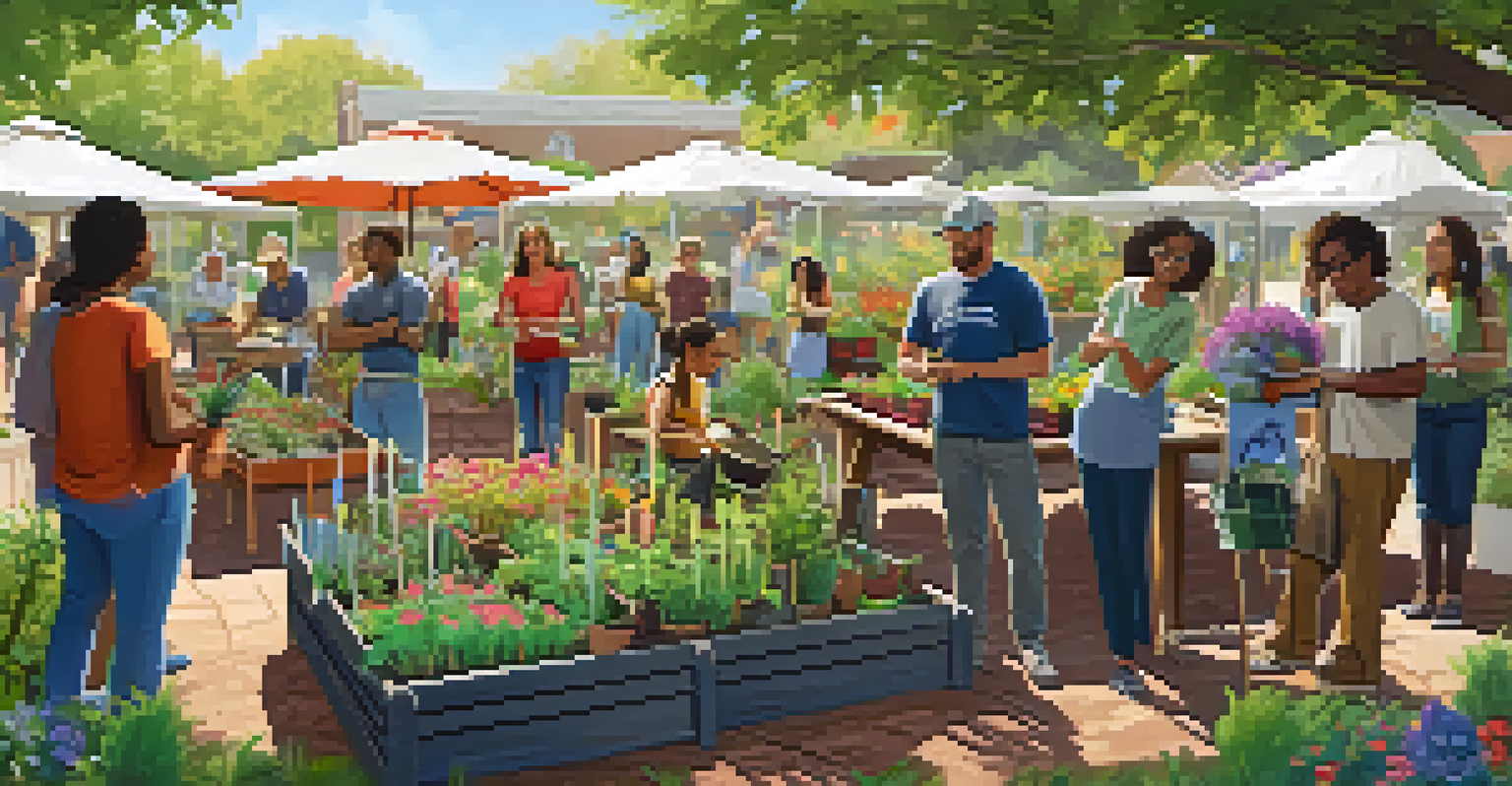The Role of Community Gardens in Boulder's Food Security

Understanding Food Security in Boulder
Food security means having reliable access to enough affordable, nutritious food. In Boulder, this concept is particularly important as the community faces challenges like rising food prices and economic disparities. By understanding local food accessibility, residents can better advocate for solutions that ensure everyone has enough to eat.
The greatest gift of the garden is the restoration of the five senses.
The city of Boulder has a diverse population with varying needs, making food security a multi-faceted issue. Some residents struggle to find fresh produce, while others may lack the means to travel to grocery stores. This complex landscape highlights the need for innovative solutions like community gardens, which can serve as local food sources.
Community gardens offer a hands-on approach to tackling food insecurity. They empower residents to grow their own food, fostering not only self-sufficiency but also a sense of ownership and pride within the community. By nurturing plants together, neighbors can form bonds and create a supportive network.
The Rise of Community Gardens in Boulder
Community gardens have become increasingly popular in Boulder over the years, transforming vacant lots and underutilized spaces into vibrant green areas. These gardens provide a unique opportunity for residents to cultivate their own fruits and vegetables while enhancing community ties. The city's commitment to sustainability aligns perfectly with the growth of these communal spaces.

Local organizations and volunteers often collaborate to establish these gardens, making them accessible to everyone, regardless of gardening experience. Workshops and gardening clubs provide education and support, allowing beginners to learn from seasoned gardeners. This knowledge exchange helps build a strong sense of community.
Community Gardens Boost Food Security
Community gardens in Boulder provide reliable access to fresh produce, addressing food insecurity and fostering community connections.
Moreover, community gardens contribute to Boulder's biodiversity by providing habitats for local wildlife and pollinators. This ecological impact enhances the overall health of the environment, creating a healthier ecosystem for both plants and people. The ripple effect of these gardens extends beyond food production to foster environmental stewardship.
Benefits of Community Gardening for Individuals
Participating in community gardening offers numerous benefits for individuals, both physically and mentally. Gardening is known to reduce stress levels, promote physical activity, and improve overall well-being. For many, it serves as a therapeutic escape from the hustle and bustle of daily life.
We do not inherit the earth from our ancestors; we borrow it from our children.
Additionally, growing food can lead to healthier eating habits. When individuals cultivate their own vegetables and fruits, they are more likely to incorporate them into their diets. This connection between growing and consuming fresh produce encourages a greater appreciation for nutrition and sustainable living.
Community gardens also foster social connections. By working side by side with neighbors, individuals can form friendships and develop a sense of belonging. This camaraderie can be especially beneficial for those who may feel isolated or disconnected in their urban environment.
Nurturing Local Economies through Community Gardens
Community gardens not only enhance food security but also stimulate local economies. By providing fresh produce, these gardens can reduce residents' reliance on grocery stores, potentially lowering their food costs. Moreover, when surplus crops are sold at local farmers' markets, they create additional income streams for gardeners.
Local businesses can benefit as well. Many community gardens collaborate with nearby restaurants and shops, supplying them with fresh ingredients. This partnership encourages a farm-to-table approach, promoting sustainability and supporting local economies simultaneously.
Gardens Promote Local Economic Growth
These gardens stimulate local economies by reducing grocery reliance and creating income opportunities through surplus produce sales.
Furthermore, the presence of community gardens can increase property values in their vicinity. As green spaces enhance the aesthetic appeal of neighborhoods, they can attract new residents and businesses, creating a positive feedback loop that benefits everyone involved.
Community Gardens as Educational Platforms
Community gardens serve as valuable educational resources for residents of all ages. Schools often partner with local gardens to provide hands-on learning experiences for students, teaching them about nutrition, biology, and environmental science. These lessons foster a deeper understanding of where food comes from and the importance of sustainability.
Workshops and events hosted at community gardens can cover a range of topics, from organic gardening techniques to cooking demonstrations. By bringing together experts and community members, these gatherings create an environment of learning and sharing knowledge. Participants walk away with practical skills that can benefit their lives and the environment.
The educational aspect of community gardens extends beyond just gardening. They also encourage discussions about social issues, such as food justice and access to healthy food. By engaging in these conversations, community members can raise awareness and advocate for equitable food systems in Boulder.
Challenges Facing Community Gardens in Boulder
While community gardens offer numerous benefits, they are not without challenges. Limited access to land can hinder the growth of new gardens, as available spaces are often competitive and require ongoing maintenance. Securing funding for tools, seeds, and other resources can also pose obstacles for garden organizers.
In addition to logistical challenges, community gardens must navigate issues related to community engagement. Ensuring diverse participation can be difficult, especially in areas with varying socio-economic backgrounds. It's crucial for gardens to create inclusive environments that welcome everyone, regardless of gardening experience or cultural background.
Educational Benefits of Community Gardens
Community gardens serve as educational platforms, teaching residents about nutrition, sustainability, and food justice.
Weather conditions can also impact the success of community gardens. Extreme weather events, such as drought or heavy rainfall, can jeopardize crops and deter volunteers. Building resilience through adaptive gardening techniques and strong community support can help mitigate these challenges.
The Future of Community Gardens in Boulder
Looking ahead, community gardens in Boulder have the potential to play an even more significant role in promoting food security and community well-being. As awareness of food-related issues grows, more residents may seek to engage with these gardens, leading to increased participation and support. The city's commitment to sustainability can help foster this growth, creating a synergistic effect.
Innovative approaches, such as vertical gardening and hydroponics, could also be integrated into community gardens to maximize space and yield. These methods can provide efficient solutions for urban gardening, making it easier for residents to produce food in limited areas. This adaptability will be essential for the future success of community gardens.

Ultimately, the future of community gardens in Boulder lies in collaboration and shared vision. By bringing together local organizations, residents, and policymakers, the community can work collectively towards a sustainable food system. Through continued investment in these gardens, Boulder can strengthen its food security and enhance community connections.